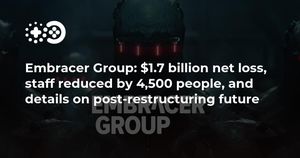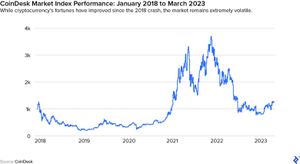Digital payment technologies are experiencing remarkable growth across the globe, reflecting the shift toward cashless transactions and enhanced consumer convenience. This transition continues to evolve, supported by various initiatives aimed at improving security, efficiency, and user experience.
Australian telecommunications giant Telstra is at the forefront of this movement. Recently, it partnered with ConnectID to simplify identity verification processes for consumers. This innovative approach eliminates the need for users to upload sensitive documents repeatedly during service applications. According to Michael Griffiths, Telstra's Executive Director for Operations, "Identity verification is a pivotal step; we know it can be a bit of a hassle for our customers and isn’t always a streamlined experience." By leveraging ConnectID, Telstra aims to cut down on the friction often associated with verifying identities, concurrently enhancing security for users.
Telstra’s move is timely considering the substantial impact of identity fraud, which reportedly costs Australia over $1.6 billion annually, as stated by the Commonwealth Attorney General's Department. The integration of ConnectID allows users to verify their identities through their bank, streamlining the process to just providing minimal personal information like their name and address. Already, tens of thousands of users have utilized this new service, and Telstra plans to expand ConnectID to additional mobile services shortly. Lynn Kraus, Chief Executive Officer of Australian Payments Plus (AP+), noted, "There is a need to build trust between people and the organisations they interact with," underscoring the importance of secure digital transactions.
Across the sea, India's National Payments Corporation of India (NPCI) is implementing new regulations to strengthen its digital payment infrastructure. Starting February 1, 2024, any UPI transaction ID containing special characters will be automatically declined. This decision follows previous noncompliance by multiple parties within the ecosystem. The NPCI’s efforts aim to uphold UPI’s technical specifications and minimize transaction failures, ensuring increased consistency and reliability.
Despite significant growth, concerns over UPI fraud have emerged. Recently, reports surfaced about the alleged “jumped deposit scam,” wherein scammers trick users by making small deposits before persuading them to authorize larger amounts. NPCI representatives dispelled these rumors, underscoring the necessity for users to authorize transactions explicitly through their UPI PIN. "Users must explicitly authorize payments by entering their UPI PIN," emphasized the NPCI spokesperson, reassuring users about transaction security.
Finally, turning to Vietnam, the country showcases one of the fastest transitions to cashless payments observed globally. The State Bank of Vietnam (SBV) announced substantial growth figures, recording over 58% year-on-year growth in non-cash transactions for the first seven months of 2024. QR code payments led this surge, indicating strong consumer enthusiasm. The rapid adoption of services like Google Pay and Apple Pay has significantly facilitated this shift, increasing accessibility for the masses.
Mastercard is playing a pivotal role within this transformative period, entering partnerships aimed at fostering innovation and inclusivity within the digital payment sector. Their collaboration with local banks has allowed for the introduction of Vietnam’s first co-badged card, combining local and international payment functionalities. This strategic partnership enhances convenience, allowing users to access services at over 130 million Mastercard acceptance points globally.
Moreso, Mastercard's commitment extends to developing integrated payment solutions for urban transportation systems, referenced by their work with Vietbank and Ho Chi Minh City Urban Railway No.1. This initiative ensures passengers can pay their fares seamlessly using domestic or international cards and e-wallets, effectively contributing to the country’s cashless agenda.
Mastercard reflects on the necessity of aligning digital payment solutions with broader economic goals, stating, "We remain focused on bringing best-in-class global solutions to Vietnam to support its cashless agenda," indicative of their resolve to drive financial inclusion and sustainable growth. With qualities such as innovative digital solutions and strategic growth partnerships, Mastercard is helping to bridge the digital divide and support Vietnam’s financial ecosystem's overall improvement.
The global transformation toward digital payment technologies is unmistakable and growing. With market leaders like Telstra and Mastercard venturing boldly forward, the framework for effective and secure cashless transactions is gaining strength, particularly within regions like Australia, India, and Vietnam. These developments reflect broader trends shaping the future of finance, where convenience, security, and user-centered approaches will become the hallmark of modern payments.



